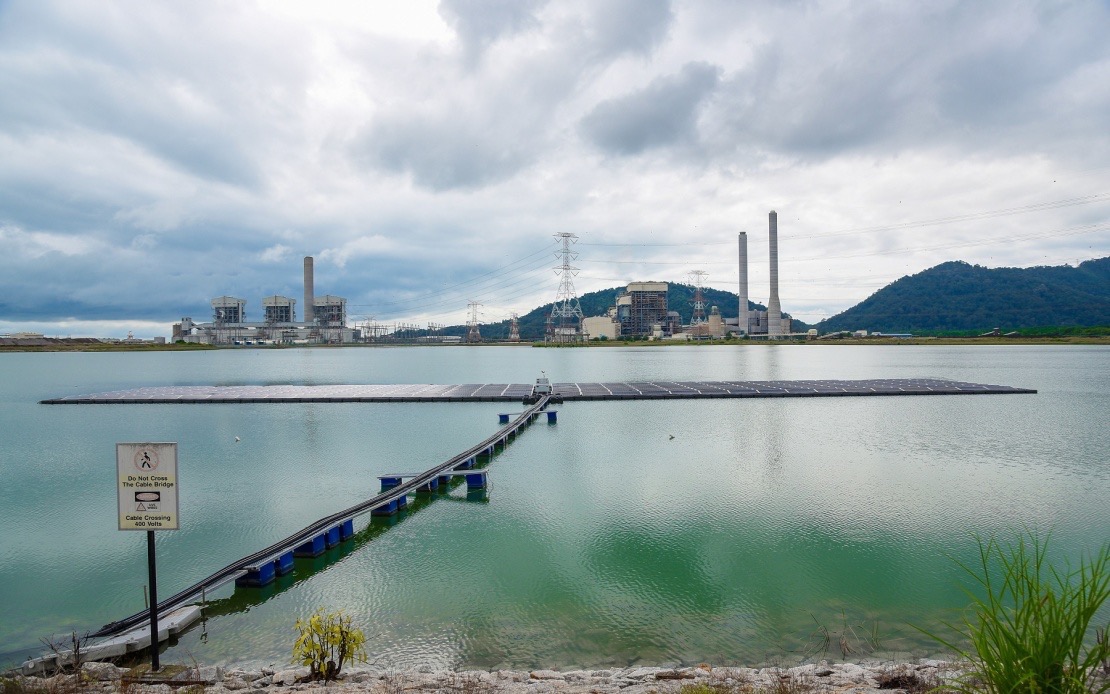News
Malaysia needs to expedite transition towards renewable energy -- Analysts
By Voon Miaw Ping
KUALA LUMPUR, July 7 (Bernama) -- Malaysia needs to reduce its dependence on fossil fuel in generating electricity, and should expedite efforts to increase its reneweable energy (RE) capacity.
With countries worldwide burdened by soaring fuel prices caused by supply shortages and high demand for energy, the deepening energy crisis is a timely wake up call for Malaysia to take more concrete actions in boosting energy security and be better prepared for any future energy uncertainties.
Head of Social, Law & Human Rights of EMIR Research Jason Loh Seong Wei said more could be done to tap the huge potential in RE.
The country could start in this direction by increasing its energy mix by boosting the RE resources, thus gradually reducing the the reliance on fossil fuel driven power plants.
At the same time, steps need to be taken to enhance the capacity of the available hydropower plants to generate electricity, he said.
“We have to be innovative and creative in maximising the power generation capacity of our dams by combining solar photovoltaic (PV) technology with hydropower. This can be done by integrating solar PV farms with the dams, for instance, on top of the reservoirs,” he said.
Malaysia relies heavily on fossil fuel as key source of power generation with coal accounting for 59.2 per cent and gas accounting for 34.3 per cent.
According to the Sustainable Energy Development Authority (SEDA) in its report in 2021, the share of RE in Malaysia remained below the global and regional average.
As of 2020, RE accounted for 23 per cent of the national power installed capacity compared to the global average of 37 per cent and the Southeast Asia regional average of 30 per cent.
Malaysia has targeted to increase its renewable energy capacity to 31 per cent by 2025 while it has also commited to become carbon neutral by 2050.
“We are still not doing enough. Whilst we have the feed-in tariff (FiT) in place, and the newly introduced Green Electricity Tariff (GET) scheme, the end-user or downstream sub-sector (electricity distribution) policies need to be more strongly backed up by policies in the mid-stream (electricity transmission) and up-stream sub-sectors (industrial electricity generation),” Loh said.
GET scheme allow domestic and industrial electricity consumers in Peninsular Malaysia to opt for electricity generated from renewable energy sources such as hydropower and solar plants starting from 1 January 2022.
He also suggested that under the Malaysia Biomass Industry Action Plan (MBIAP), small-scale biogas generation units could be set up to convert waste into biogas for power plants.
“As a result, it will reduce landfill waste, reduce the amount of methane released into the environment, and spur business opportunities for SMEs in the biogas industry,” he said.
Meanwhile, Putra Business School economic analyst Dr Ahmed Razman Abdul Latiff said more focus also need to be given on creating the right infrastructure and technology to harness energy from renewable sources such as solar, hydro, green hydrogen and biofuel.
“Malaysia’s electricity sector should start to reduce dependency on coal and gas supply. Malaysia’s leading power generation company TNB should commit to its long-term plan to reduce dependency on coal supply.
“To achieve Net Zero, TNB will need to accelerate investments in emerging green technologies such as green hydrogen – as soon as it becomes economically-viable,” he said.
He noted that at the moment, TNB has been acquiring few renewable energy companies and has started to focus on green hydrogen, on top of producing solar and hydro based energy.
The country’s largest electricity company is also committed to significant renewable generation growth and 50 per cent reduction in coal generation capacity by 2035 and eventually Net Zero & Coal-Free by 2050, he added.
“This is a good strategy but it needs more time to start producing bigger impact as TNB requires time to replace existing coal and gas power plants which require high capital expenditures,” he said.
“I do believe that TNB is already making efforts in investing in RE especially taking into account the new growth opportunities,” he said pointing out Malaysia is already moving towards RE, albeit rather slowly.
-- BERNAMA
Other News
Sarawak Lepasi Sasaran Kapasiti Gabungan Tenaga Boleh Baharu Tahun Ini - Abang Johari

Oleh Nur Ashikin Abdul Aziz
SINGAPURA, 21 Okt (Bernama) -- Sarawak mencapai 62 peratus sasaran campuran kapasiti tenaga boleh baharu (TBB) tahun ini, melepasi sasaran 60 peratus yang digariskan dalam Strategi Pembangunan Pasca COVID-19 (PCDS) 2030.
Sarawak Pacu Pertumbuhan Tenaga Boleh Diperbaharui Untuk Manfaat ASEAN - Premier

SINGAPURA, 21 Okt (Bernama) -- Sarawak komited menyokong peralihan tenaga boleh diperbaharui di Asia Tenggara dengan memanfaatkan potensinya sebagai "Bateri ASEAN," yang akan membekalkan tenaga bersih menerusi sambungan Grid Kuasa Borneo dan ASEAN.
Belanjawan 2025 Percepat Peralihan Kepada Tenaga Bersih - Solarvest

KUALA LUMPUR, 19 Okt (Bernama) -- Belanjawan 2025 merupakan satu langkah ke arah mempercepat peralihan kepada tenaga bersih di Malaysia, kata Solarvest Holdings Bhd.
© 2025 BERNAMA. All Rights Reserved.
Disclaimer | Privacy Policy | Security Policy This material may not be published, broadcast,
rewritten or redistributed in any form except with the prior written permission of BERNAMA.
Contact us :
General [ +603-2693 9933, helpdesk@bernama.com ]
Product/Service Enquiries [ +603-2050 4466, digitalsales@bernama.com ]
